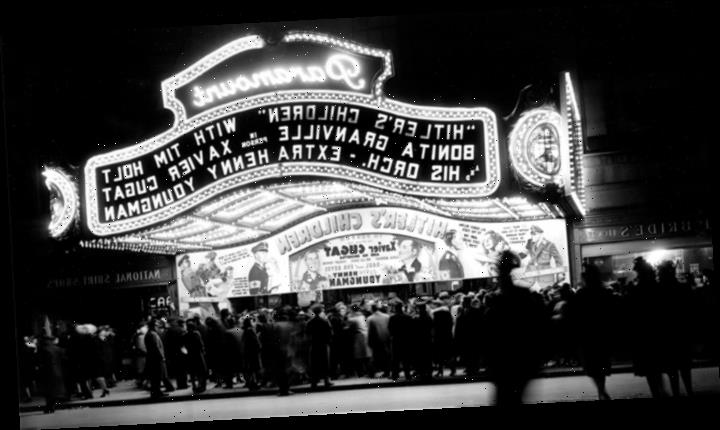Movie theaters in multiple states — Colorado, Connecticut, Louisiana, Maryland, Michigan, Minnesota, New Jersey, New York, Ohio, Pennsylvania and Washington — have been ordered to close in response to the coronavirus pandemic.
The unprecedented move comes as most theater chains — with the exception of Regal Cinemas — have tried to stay open while taking steps to cut capacity.
Theater owners were hoping to keep lights on to varying degrees amid the public health crisis, thought Regal Cinemas, one of the largest national chains, announced Monday that all 543 locations in the U.S. would be shutting down by Tuesday. By Monday night, Alamo Drafthouse and AMC Theatres had followed suit.
Exhibitors expect the order will soon extend across the entire country as officials start to restrict non-essential public gatherings to halt the spread of the virus.
On Sunday, the Centers for Disease Control and Prevention recommended that public gatherings involving more than 50 people be called off for the next eight weeks. In many of the states, the new restrictions also apply to bars and sit-down restaurants, though dining institutions were generally still allowed to offer take-out meals.
New York, Connecticut and New Jersey’s governors issued a joint statement on Monday saying that theaters in all three states would be ordered to close “temporarily” as of 8 p.m. Meanwhile, county public health authorities in Indianapolis, Ind., ordered closures starting at 8 a.m. on Tuesday. But it’s unclear how long individual states will shutter theaters, restaurants and other public gathering spaces. Washington Gov. Jay Inslee and Pennsylvania’s governor, Tom Wolf, announced a two-week closure of movie theaters, along with restaurants, bars and other entertainment facilities in their respective states.
On Monday afternoon, Colorado Gov. Jared Polis announced that theaters would be closed there as well, along with gyms and casinos. Restaurants and bars were limited to take-out food service only. Minnesota Gov. Tim Walz also shuttered theaters starting at 5 p.m. on Tuesday.
In Massachusetts, Gov. Charlie Baker ordered public gathering places, including theaters, to limit occupancy to 25 people. Rhode Island Gov. Gina Raimondo also banned gatherings larger than 25. Local governments have taken similar steps. Los Angeles County has ordered all movie theaters to close, as has San Francisco and Washington, D.C. Anchorage, Alaska, ordered theaters to shutter as well.
Late Monday, California Gov. Gavin Newsom ordered theaters to close statewide. In Virginia, the governor limited public gatherings to no more than 10 people. On Tuesday, Iowa Gov. Kim Reynolds also ordered theaters to close.
The exhibition industry remained open last weekend, but ticket sales at the domestic box office plummeted to a historic low, generating roughly $55 million between Friday and Sunday. To compare, Disney-Pixar’s “Onward” made $39 million alone the weekend prior. The shuttering of theaters will be a huge hit to the global box office, which is already reeling from mass closures in China, the world’s second-biggest movie market, as well as South Korea, Italy and other areas heavily impacted by coronavirus.
Theater circuits such as AMC, Alamo Drafthouse, Arclight and Regal took heightened measures to increase safety and sanitation last weekend. In compliance with CDC’s recommendations for social distancing, multiplexes reduced the amount of tickets sold per auditorium by 50%.
Even before mandated closures, Hollywood studios shifted release plans for major movies like Disney’s “Mulan” and “The New Mutants,” Paramount’s “A Quiet Place” sequel, Universal’s “Fast & Furious” installment “F9,” and MGM’s “No Time to Die” — which would have resulted in less content to show on the big screen.
In Hollywood and across all industries, crucial developments regarding the virus are unfolding at a rapid pace. By Monday, much of the entertainment industry, including Broadway, theme parks, and TV and movie production have been closed or halted to stop the spread of coronavirus.
Popular on Variety
Source: Read Full Article
